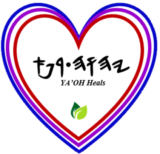Children's Health

Herbs offer tremendous benefits for children’s health. Most of the simple afflictions of childhood respond quickly to herbal remedies. Cuts, scrapes, burns, colds etc. become great ways for you to see how effectively herbal remedies work. A simple knowledge of herbs and a well-stocked herbal pantry can considerably lessen the afflictions of childhood ailments.
When to use herbs
You can use herbs with confidence for simple ailments such as colds, colic, teething as well as many other common childhood illnesses that children often contract. Contrary to popular opinion, herbs and orthodox medicine are not at odds, but are two systems of healing that can complement each other. Consult your physician or holistic health care provider for guidelines on using allopathic drugs and herbal remedies in combination.

Any herb that is safe for adults is safe for children as long as the size and weight are accounted for and the dosage is adjusted accordingly. There has been some concern expressed about using stronger medicinal herbs such as goldenseal, St. John’s Wort and Valerian for children, but they have been found to be very useful and effective provided that they are used in small amounts for short periods of time and used in conjunction, or formulated with milder herbs. To learn more about herbs that are best for various ailments, click the button below.
safety precautions
Perform small-dose tests. Use the herb in small amounts at first, to see how it works for your child if you have not used it before. Patch tests are a good safety measure. Make an herb tea, then “paint” a small amount onto the inner arm. Wait 24 hours; if you do notice any adverse reactions.
- skin rash
- itchy eyes
- throat swelling
- itchiness
Discontinue immediately if any signs of allergic reaction appear. You may try again doing the same test using the same amounts after a few days, if the child still exhibits the same reactions then I would attribute the effects to the herb or formula and look for a more compatible herb.

when to seek medical help
It is important to know when your child’s illness or injury warrants immediate emergency attention. Seek medical help is the child:
- Is not responding to the herbal treatments you are using.
- Shows signs of serious illness, such as fever greater than 101°F, low-grade persistent fever, hemorrhaging, delirium, unconsciousness, and severe abdominal pain.
- Is lethargic and weak, unresponsive, or difficult to awaken.
- Complaints of stiff neck and headache and is unable to touch his or her chin to the chest. In babies the fontanel (soft spot on top of the head) may bulge. These are possible early signs of early meningitis and require immediate medical assistance.
- Has recurring ear infections.
- Shows any signs of chocking on foreign object; which include difficulty breathing, sucking in breath, and turning blue.
- Becomes dehydrated. Warning signs are dry lips, dry mouth, and no urination in 6 hours.
- Hass bee stings or insect bites that cause allergic reactions and shock. Extreme anxiety, difficulty breathing, and other unusual responses can be warning signs.
- Has red streaks on the skin emanating form the point of infection; this could indicate blood poisoning.
- Has burns that cover areas on the body twice the size of the child’s hand or that are infected. Also look for signs of shock and third-degree burns.
determining dosages



There are several different techniques for determining the proper dosage for children. The charts above are guidelines to dosage amount. However, it is equally important to consider the weight and overall health of the child. Also, consider the nature and strength of the illness and the quality and strength of the herbs being used. The charts to the left are Rules for dosages according to Young’s Rule and Clark’s Rule.
https://www.ncbi.nlm.nih.gov/books/NBK554603/#article-36961.s1
https://www.ncbi.nlm.nih.gov/books/NBK541104/#article-37242.s1
Herbal medicne for infants

Yes, you read that right. How do we administer herbal medicine to infants?
Mother’s milk is the most effective and the safest way to administer herbs to infants. It is necessary for the mother to drink at least 4 to 6 cups of the tea that contains the herbs daily. This will benefit both mother and infant.
But what if I am not nursing?
No problem, you can add the herbal teas and or tinctures directly to the infants bottle. It is always important to do your research or ask for help if you are not experienced in herbal medicine.

